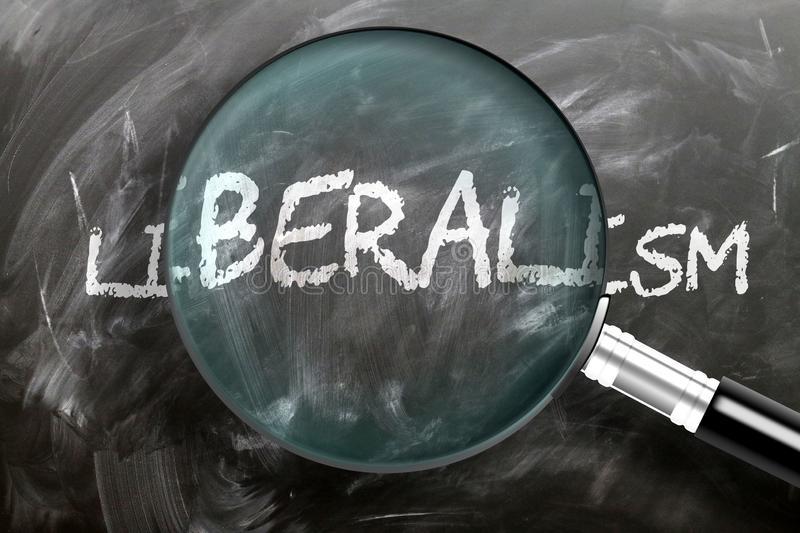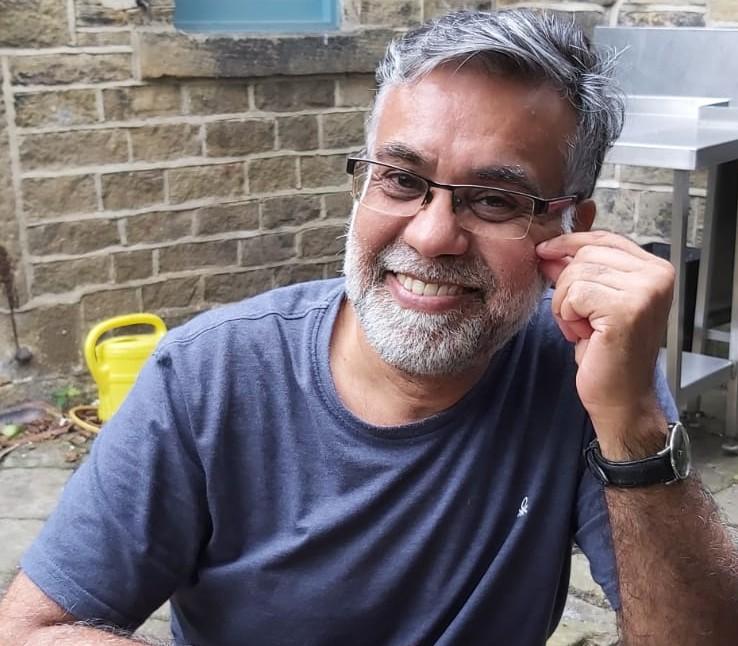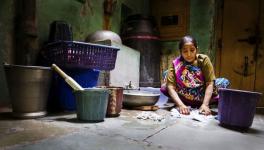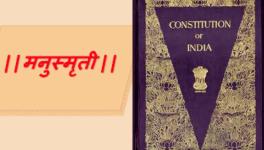‘Indian Liberalism is a Myth and Muslims Became its Mascot’—Sanjay Srivastava

Image Courtesy: dreamstime.com
Well-known anthropologist Prof. Sanjay Srivastava works at the Institute for Economic Growth, Delhi University, and currently teaches at University College London. His works span multiple themes, from masculinity and new urbanism in India to globalisation, consumerism, and middle-class cultures. In this interview with NewsClick, he says the idea of India as an inherently liberal place was never seriously challenged, nor were those who espouse this notion. This absence of questioning is the source of multiple conflicts, for without putting in the hard work, no country can fight racism, sexism, homophobia, Islamophobia—or caste and communalism. Edited excerpts.
You recently wrote that Indian liberalism is a historical myth, and has to be countered if we want to understand society. Why did you say so?
I am an anthropologist and work in the present. This idea about an Indian tradition of liberalism grew out of the nationalist movement. It was a counterpoint to the assertion of colonial rulers that Indians have no history of liberalism [unlike in the West]. The nationalists responded by saying, ‘we too have a tradition of liberalism and multiculturalism, and we have had these for a very long time.’
My thinking on the topic [liberalism] is based on empirical work and as an engagement with historians who have constantly, and I think erroneously, presented India as having a long tradition of liberalism. We have to begin with the idea that liberalism is a very specific term—specific to our time—and you cannot push it back to medieval or ancient India because the present cannot explain the past. It would not mean very much.
If you are interested in liberalism and what liberal thought is, you need to create the conditions for it rather than assume they have always existed in Indian society. Unfortunately, that is what has been done so far, which means you don’t do the work required to institutionalise liberalism. [For example] How can one square the idea of a historically liberal society with the existence of the caste system?

Prof. Sanjay Srivatstava
Yes, but why do you use the specific term ‘historical myth’?
It is a myth because it is a part of the nationalist discourse in all countries. Whether it is Europe, India, or Africa, nationalism is all about manufacturing myths about the kind of person you are. It is a myth [also] because I do not believe that in everyday life liberalism as we understand it has existed in India. People always say, ‘you know, there had been Hindus, Muslims, and Christians who lived alongside each other,’ but that does not necessarily translate into liberalism.
Liberalism is the act of not only living alongside people who are different from you but being able to deal with them in times of crisis. It is a myth manufactured by scholars of India and obviously by different governments. It is something we have assumed to be always there, whereas anyone who works in the present will tell you that the ideas of liberalism are not institutionalised in everyday Indian life. Just because Hindus and Muslims live alongside each other does not mean this is liberalism. We can see this in times of conflict.
Because Hindus were always the majority and always in a dominant position, they were never really challenged and could afford to have a sense of noblesse oblige towards other religions. They could afford to be magnanimous in the manner that the rich can be towards the poor as long as the latter do not question the dominance of the former. To realise a liberal society means not pretending that it has always existed among us, rather it involves working towards creating the conditions for it.
A myth is a system of belief that you cannot empirically prove or disprove and that is why Indian liberalism is a myth. It was never been truly tested. This idea that ‘our parents’ generation was more liberal’ and that there has been a decline is a fanciful way of thinking about the past.
This should be clearer when you discover that all those people we thought were liberals are not necessarily liberals. In the current environment, they feel emboldened to say things they did not, earlier. [In] societies where there is something like liberalism, it has been worked upon, you know, people have questioned what is wrong with that society, whether it is racism, sexism, homophobia, Islamophobia, or whatever. I do not think in India we had that kind of questioning because we always assumed that we are ‘naturally’ liberal.
Would you say a myth is also something—is it a wish to be that India that was liberal?
I agree. We wish India was liberal, but it has not been. Too much of Indian thinking about liberalism has been about what I think are surface things—listening to Sufi music or eating food that is considered Muslim. But liberalism is a much more fraught and problematic thing. If you wish for that thing then it requires very hard work, it requires self-questioning. Historically, I certainly don’t deny that there has been a very genuine wish that India was a liberal society but that wish has too easily been converted into a fact—and that’s the problem.
In India, we notice that very often the older generation—grandparents, fathers, or mothers—cannot commit to, say, caste tolerance. Is this because elite-caste have always lived away from non-elite castes, Muslims away from Hindus and Christians away from others, and so on. Is this why beliefs were never really tested in India?
Yes, and I think in the recent past, because of changes in the economic and cultural spheres, there is a greater aspiration on the part of those who could never earlier aspire. For example, lower-caste Hindus whose families may have businesses that have done well over the past two decades can now afford to send their children to university. They have access to certain types of education which also expands the sphere of aspiration. You are, in effect, competing with others who are already there, by which I mean the Hindu upper caste. So, it is a new situation...one that is testing the dominant culture. Historically, when dominant cultures are not tested, interrogated or challenged, and do not feel threatened in any way, we never know what they will do or not.
In the current context [the] dominant culture in India by which I mean Hindu culture is being tested, it is being pushed, because of several economic, political, and social changes. This is what has changed. Earlier, a so-called liberal of Hindu background could pretty much lead her or his life in a silo. She or he could present themselves as liberal by saying ‘look I have a cook who is a Muslim’. But it was a very well-established hierarchical relationship: the Muslim cook may have been treated like a family member but knew his place.
Now it is likely that the Muslim cook will have a son or daughter who is better-educated, does not want to be a cook but a white-collar professional, and who challenges the older position and hegemony of the people in whose house the parents worked. These changing aspirations mean that some of the silos are being dismantled.
Of course, there are still those who want to maintain those older structures and silos but because they are being challenged, the older context is breaking down. That is [also] the “problem” in contemporary India—the older positions are being questioned, increasingly by those who earlier did not do so.
Earlier, the so-called liberal Hindu would say, we have no problems with ‘these other people,’ because there was no question of their position ever being under any threat and their cultural, political, and economic dominance ever being challenged.
So, in a sense, the decades of uplifting lower caste through reservation somehow really challenged this ‘liberalism’?
Indeed, and that is kind of ironic because the quota and reservation system was very much a part of the liberal agenda. Of course, there is no reservation [based on caste] for non-Hindus. That is a peculiar situation because there are non-Hindus who are deserving of reservations. The reservations system has produced people who may have moved into the same class as the upper caste and it may be possible that at some point, a lower caste person because he or she has moved into a different class, may end up marrying an upper caste person of the same class. Marriages of these kinds are fundamental frontiers in terms of testing upper-caste liberalism.
Liberalism is not just about job reservation, it is also about who your son or daughter can marry, who they should have as friends, etc. Job reservations certainly have provided the conditions for producing a class that might question the older liberalism in as much as through reservations people have gained education and become white-collar workers and are now able to question certain forms of caste privileges.
So, the reservations system created the conditions, in some ways, to question the Indian liberal attitude. That certainly was not there earlier.
You said Muslims knew their place at one point. At the same time, you cannot be tolerant if you do not have anything to show for it. So, are the Muslims in a way mascots of Hindu India’s tolerant culture?
In most parts of India, there is no strong Muslim middle class. You have a Muslim elite, and the vast majority are the poor. Historically, the Muslim elite shared much more culturally and economically with the Hindu elite than the Muslim poor. So, large numbers within the Muslim population have very little entry into white-collar professions. They are mostly self-employed in casual jobs. That is often because they are not able to enter the formal work sector. After all, it is discriminatory.
Large numbers of Muslims in India were never really in a position to challenge dominant notions of Indian identity. So, although we tend to think of India as a very multi-cultural country the dominant public modes of expressing Indianness aesthetically—if you look at, for example, how our public ceremonies are started, how ships are launched, how something is inaugurated—all are Hindu or borrowed from Hindu symbolism. If you go to a musical concert, there is the lighting of the lamp that is a very specific Hindu ritual.
What happened in India is the establishment of something called Hindu contextualism. That is the larger context within which India and Indians express their cultural ethos are deeply Hindu. There has never really been any challenge to this. However, we continue to say that we are multi-cultural through referring to a group that is not going to challenge you in any way because it is economically and politically unable to do so.
So, Muslims became a mascot of Indian liberalism precisely because they were never in a position to argue that, for example, the dominant, or most popular, ways of expressing Indianness were Hindu. You never have Indian inauguration ceremonies or ship-launching ceremonies that borrow anything from Muslim ways of doing things. However, Muslims became a mascot of Indian liberalism because they provided proof that Hinduism is a liberal religion. Hindus were able to say ‘look, we get along with Muslims, we have Muslim cooks, Muslim food, poetry etc.’ Muslims became a mascot—harmless representatives of Indian tolerance.
They also became a mascot simply because mascots are largely inert. You can do with them whatever you choose to. You can give the mascot whatever meanings you want. A mascot itself does not have a meaning. So, you dealt with the population which could not give itself meaning. It was there to constantly provide cultural background, never to question, nor was it in a position to say I do not want to be someone who provides cultural ‘justification’ for Indian liberalism. That, for example, I want to be a white-collar professional and not the kind of Muslim you think will provide the ingredient to prove that Indian liberalism and Hinduism are very liberal and allow my existence.
This only becomes a problem when that mascot says I don’t want to be a mascot, I want to be like you. [When] the mascot does not want to be a mascot anymore. It wants to have a more complex personality. It wants not just to be the person, that culture, that religion that provides music and food for another religion and culture to claim to be liberal.
While listening to you I was thinking of Kashmir. But was the fact that [first Prime Minister Jawaharlal] Nehru, for example, could not let go of Kashmir also to prove multi-culturalism exists in India? I mean, you cannot say you are very multi-cultural if a Muslim majority state goes to the other side.
That is an important point because if, for example, if all Muslim majority areas went to Pakistan...that would prove the two-nation theory—that Muslims belong in Pakistan, Hindus belong in India, correct? So, certainly, I think that was a strong part of why someone like Nehru—who I think was a far more genuine liberal than most other people—could not countenance any other position for Kashmir other than union with India. That would have fundamentally undermined the notion that India is a liberal country where people from different religions can live together.
So, would you say the Kashmir issue is a part of that fundamental problem that Indian liberalism has within itself?
I would say, yes. In principle, of course, [there is] the notion that no nation-state will agree to give away part of its territory because that undermines the idea of a sovereign and strong nation-state. But beyond this, the Kashmir issue is deeply connected to the problems of liberalism. Of course, currently, it has also become entangled with the problem of the Hindu right in India.
We have seen mass protests not only by Muslims but also by liberals against the Citizenship Amendment Act, 2019 and the proposed National Register of Citizens. Would you say these protests are a sign that Indian Muslims ‘forgot their place’?
I think so; certainly, the idea of publicly protesting against laws in an environment where there is a great deal of political hostility, is something people would argue is a part of Muslims ‘forgetting’ their place. Even among liberals, there is a sense of disquiet about these ways of protesting, I guess. Among ‘old-fashioned’ liberals there is disquiet that earlier you could talk to them and convince them and that is no longer possible. The symbolism of the 2019-2020 protests against the Citizenship Amendments Act at Shaheen Bagh in Delhi is very important, it added to the disquiet about the new form of the Muslim identity which is perceived as more and more radical, louder, and aggressive.
There is also the idea of public visibility of those people who were not earlier publicly visible; a class of Muslims who earlier did not speak for themselves. They were usually represented by the Muslim elite and that has changed as well. It is not necessarily the Muslim elite that represents the broader Muslim community any longer. All kinds of people are coming out on the streets!
I think upper-caste Hindus found it easier to deal with the Muslim elite. They were similar to them. They find it much more difficult to deal with non-elite Muslim populations and hence the disquiet that something has changed and that ‘these people’ are perhaps not grateful enough to be living in a society that is, after all, very liberal.
The fact that India was never that liberal was not discussed in liberal circles. But who is masking this fact—the Congress party? Or is it the liberal elite who do not want to face that discomfort?
At a certain point, the Congress and the liberal elite were synonymous or at least overlapped considerably. More broadly, through the fifties, sixties, or seventies, even the Hindu right-wing would have said India is a very liberal country, Hinduism a very liberal religion, etc. along with non-right-wing people. So, I don’t think you can put it down to any one particular group. But of course, the Congress because it was in power for such a long time did promote the idea of India being fundamentally a very liberal country.
But it drew upon ideas that were also floating around, like writings by historians and nationalists, that presented medieval or ancient India in modern terms, as very liberal, by reading modern concepts back into Indian history. However, you cannot say that emperor Akbar was an equivalent of a modern liberal person. Everyone in India said India is a liberal country and they also said so as a defensive mechanism that derives specifically from the colonial experience and Indianness being constantly being presented in negative terms. So, I think, many nationalists latched onto was this idea of ‘essential’ Indian liberalism, essential Indian secularism, essential Indian multi-culturalism, essential Indian capacity, and it difficult to say that any group promoted this idea.
Because Congress was in power for such a long time it had the resources to promote a certain kind of history but I would also lay some of the blame at the feet of professional historians. They constantly presented a notion of liberalism that India was supposed to have which I do not think was there and we now see that little work has been done to create the conditions of liberalism.
So, your fundamental critique is actually that liberals stuck to that wish, the myth, rather than looking into the mirror?
That is right. I do not think we had serious introspection within modern Indian intellectual traditions. We always tended to push back some notion of contemporary ideas that emerged from nationalism into the distant Indian past and translate ideas regarding what we wish to be into what we are. So, I think that one serious problem with modern Indian intellectual traditions has been a lack of serious interrogation, about what people in privilege are themselves, how they came to into privilege, and why do they believe that there is no discrimination in India.
And introspection is unlikely now as the political discourse is so polarised, so antagonistic?
I agree, and that makes things much more complicated because if you ask a question about what the problem with Indian liberalism is, possibly, you might be seen contributing to the discourse of the Hindu Right. So, you are right, many would argue this is a bad time to question Indian liberalism because at present that is the last bulwark against what is happening. Yet, I would argue that what is happening is also the result of the fact that it [the notion that India is very liberal] has never been questioned.
This is the irony of the situation: at present, people will argue this is not really when you question liberalism and yet we do not know what is the right time to question it.
But if liberalism is tested at this moment, then it would support the tendency towards a Hindu nationalist government in power, which is anything but liberal?
Yes, but this is happening precisely because, at earlier points in time, liberalism was not tested. Now when it is being tested, many Hindus would argue that this [Hindutva] is like a caricature of Hinduism, that Hinduism was always a liberal religion. And that what ‘these people’—the Muslims—are asking for is unfair. Because, you know, ‘they have been treated well in India, better than how minorities are treated in Pakistan,’ that the Muslims are seeking to ‘take advantage of Hinduism, a liberal religion’.
In the current environment, there is a great turning to the Hindu Right by even those who earlier could be identified as ‘liberal’. That seems significantly linked to the fact that liberalism was never really questioned.
Historically, in India, we have misrecognised a particular kind of Hinduism and Hindu worldview for secularism. That is a genuine problem. We never had genuine secularism in India; we had Hindu secularism. It is much easier for people to turn to the Hindu right now and say that this is perfectly fine because, after all, Hinduism has always been a secular religion.
There has never really been a good time to ask questions about liberalism. We might as well ask the question now—how much worse can it get? What else can happen, after all?
If unity in diversity, which symbolises the Gandhian idea of India, is failing the first time it is being tested, does it mean it was simply a Utopian concept?
Yes, I think so. Well, the unity in diversity idea was based fundamentally on Hindu convictions. It was always a diversity that was imagined to be controllable. It was the diversity whose larger background was Hinduism. Hinduism was a template on which this diversity was allowed to proliferate. And that is what has happened. Unity in diversity was fundamentally a very comfortable idea because it never really was about genuine diversity.
A genuine diversity would have meant, for example, that in public ceremonies of the nation-state, you may have employed Muslim or Christian symbols. But that is completely untrue even now. Even at the height of Nehruvian liberalism and secularism, we never had public moments that drew upon any symbols except the Hindu ways of doing things. That is the context from which the idea of unity in diversity comes. It did not challenge what that unity or diversity is about, and we are paying the price of that.
Was it always diversity on Hindu terms?
Absolutely. Yes, very much. Very much so.
Aaquib Khan is an independent journalist based in Mumbai.
Get the latest reports & analysis with people's perspective on Protests, movements & deep analytical videos, discussions of the current affairs in your Telegram app. Subscribe to NewsClick's Telegram channel & get Real-Time updates on stories, as they get published on our website.























